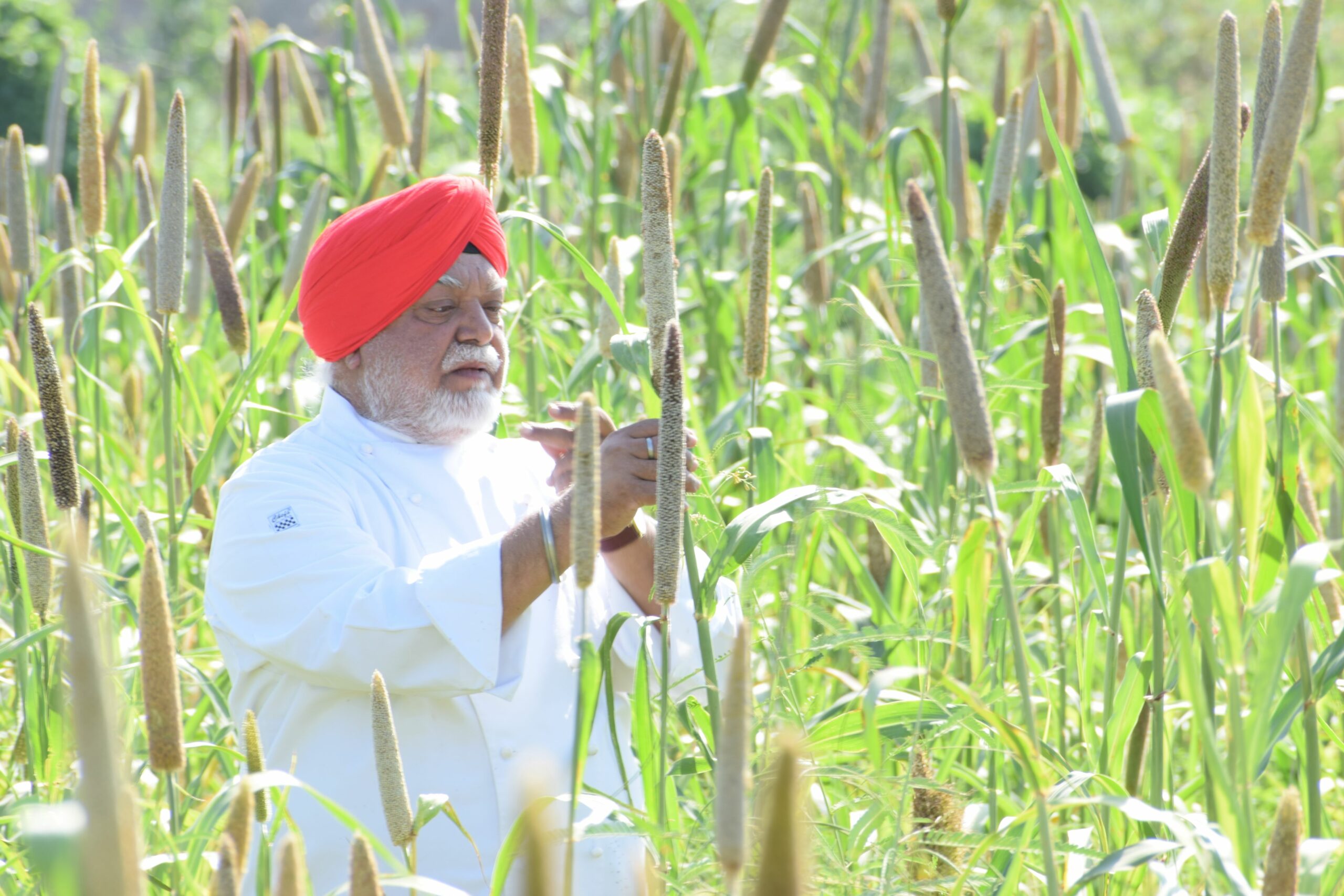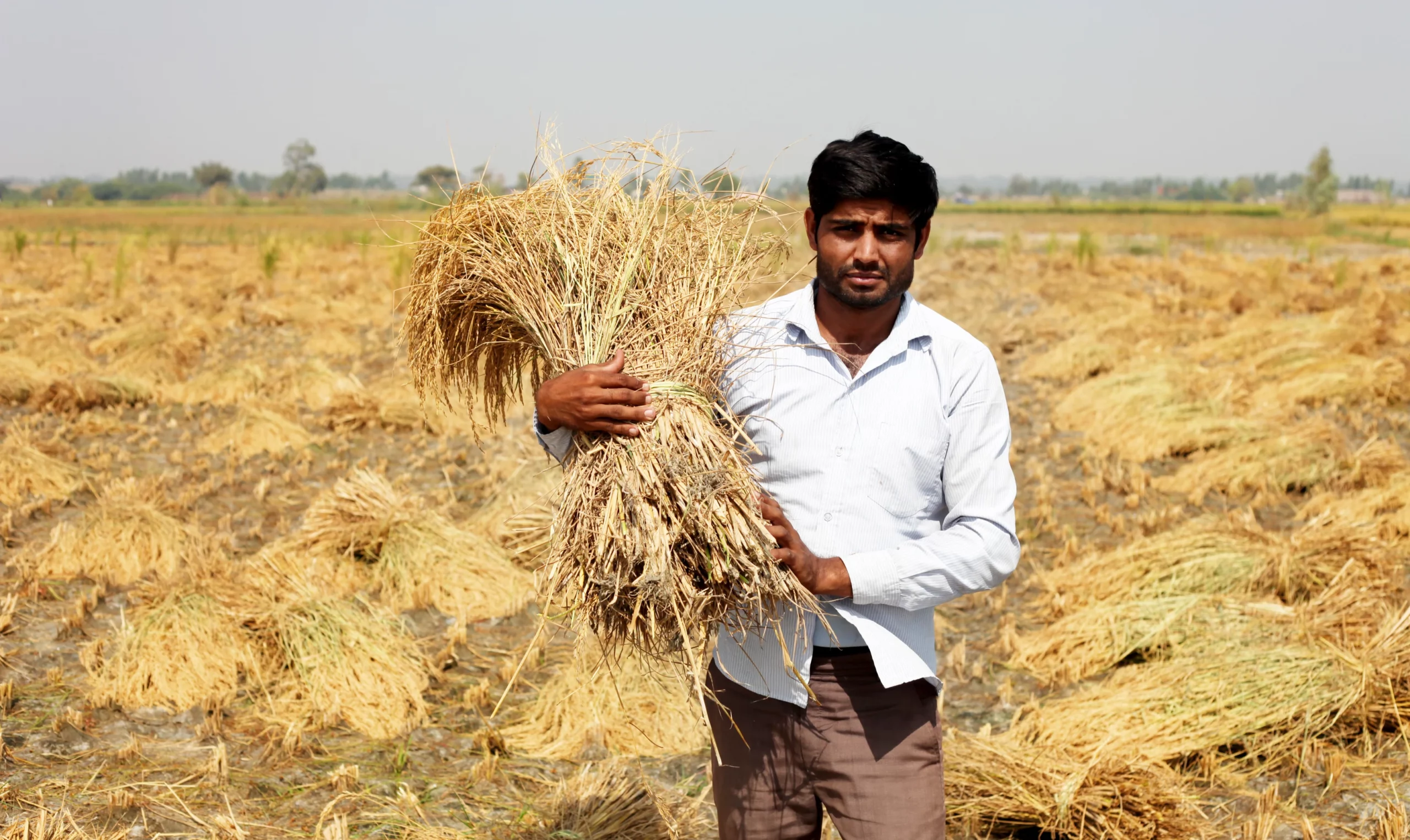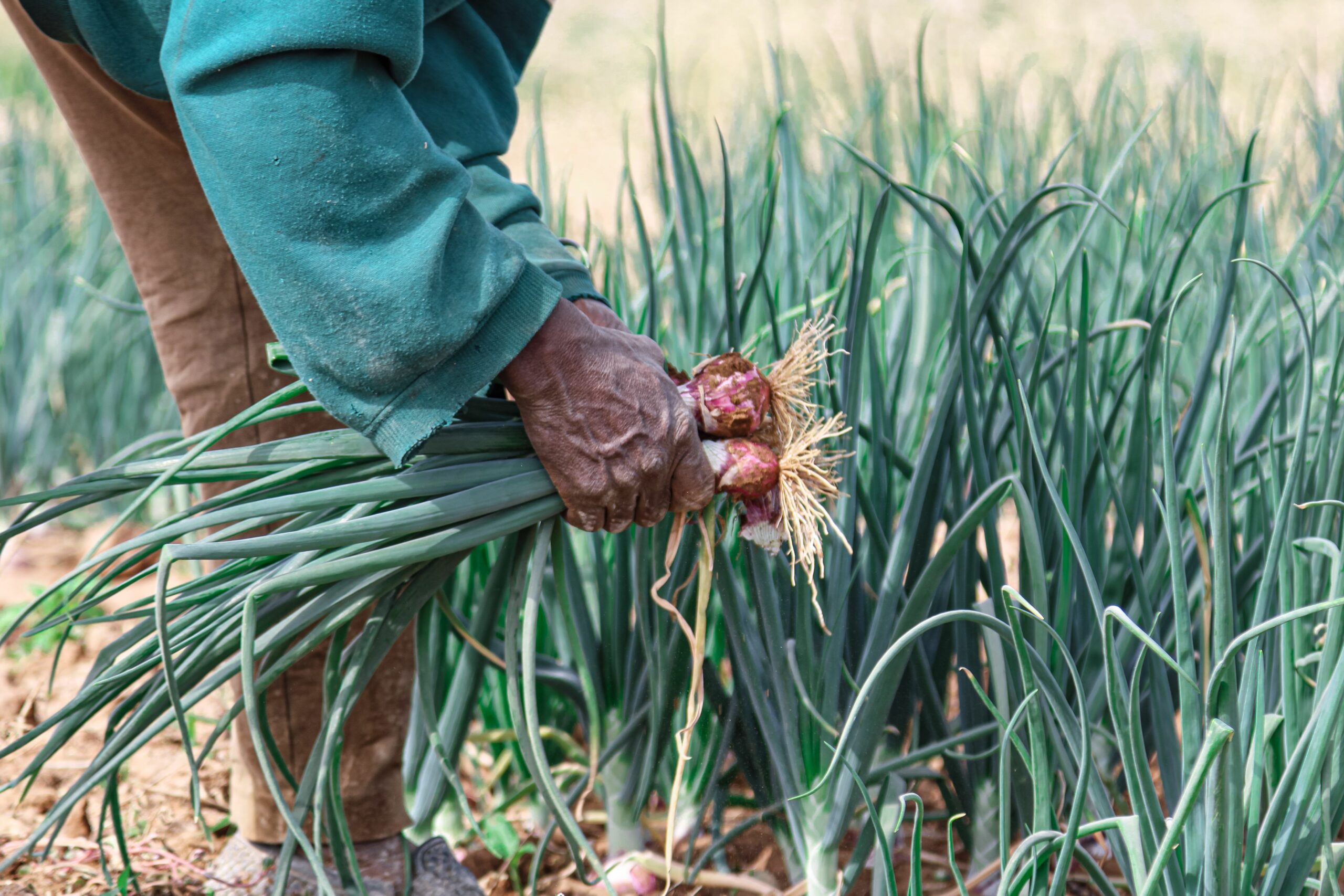In the close vicinity of Amritsar, amidst the rustic charm of Pind Sohiya Kalan, my family’s agricultural legacy has woven a tapestry of tradition and sustenance. Here, the fertile land has been a canvas for cultivating an array of vegetables, wheat, and rice—each crop echoing the rhythm of seasons and generations. This article holds a special place in my heart, as it stems from the rich agricultural heritage that my family tends to with love and dedication.
For me, cooking transcends the boundaries of a personal affair; it is a social act that fosters a profound connection with the food we prepare. The power vested in chefs, I believe, comes with a profound responsibility—to advocate for the fair treatment of food producers and champion ethical, sustainable practices that resonate from the fields to the dining table.

The Synergy of Chefs and Farmers: A Vision for Sustainability
In the culinary world, chefs are bestowed with a unique power—to shape the narrative of the food industry. This power comes with the responsibility to foster a deep connection with the source of our sustenance—the farmers. Collaboration with local farmers becomes paramount, ensuring a continuous flow of fresher ingredients while promoting harmony with nature and building a sense of community.
Opting for sustainable and ethically sourced food not only reduces carbon footprints but also supports ecological balance, fostering a mutually beneficial collaboration for a sustainable future. This harmonious relationship between chefs and farmers is exemplified by initiatives like Tijara Farms, led by the inspirational farmer Sneh Yadav, actively promoting the farm-to-table concept, and empowering the producer community. More farms are taking the concept forward.

A Manifesto for Change: Connecting Chefs and Farmers
To manifest this union of chefs and farmers, a manifesto for change emerges—a guide to reshape the culinary landscape and contribute significantly to sustainable agriculture and food security.
- Community Events: Raise awareness about good food habits. Engage in events that educate the community on the importance of sustainable and locally sourced produce.
- Champion Sustainable Ingredients: Encourage chefs to focus on seasonal menus. Inspire chefs to create menus that celebrate the diversity of seasonal produce, fostering a connection with the natural rhythm.
- Promote Sustainable Agriculture: Support farming practices that benefit the environment. Advocate for and support farmers in adopting sustainable practices such as organic farming, reduced pesticide usage, and responsible water management.
- Waste Utilization: Creatively use farm waste to create culinary delights. Encourage chefs to explore innovative ways to utilize farm waste, reducing the environmental impact and promoting sustainability.
- Farm to Food: Emphasize freshness with the mantra “Eat Feel Fresh.” Prioritize freshness in culinary creations, emphasizing the sensory experience that comes with locally sourced, seasonal ingredients.
- Quality Over Quantity: Shift focus on quality produce over time. Encourage chefs to prioritize quality over quantity, fostering a culture of appreciation for high-quality, responsibly produced ingredients.
- Ethical Practices: Chefs and farmers must uphold ethical practices for the sake of future generations. Advocate for fair trade practices, ensuring that both chefs and farmers contribute to a sustainable and ethical food ecosystem.
8. Agri Tourism Promotion: Help spread awareness about sustainable agriculture through agricultural tourism. Engage in initiatives that promote agritourism, providing consumers with a firsthand experience of the agricultural processes.
9. Local and Seasonal Emphasis: Design menus that highlight local, seasonal, and nutritive produce. Work closely with local farmers to design menus that showcase the richness of seasonal produce, contributing to regional culinary identity.
- Understanding Local Conditions: Chefs should familiarise themselves with seasonal produce and work closely with farmers. Foster a symbiotic relationship by understanding the nuances of local conditions and collaborating with farmers to adapt culinary creations accordingly.
- Knowledge Sharing: Involve farmers in sharing knowledge about heritage, traditional, and conventional uses of produce. Promote a culture of knowledge exchange, where farmers contribute their expertise, enriching the culinary landscape with traditional wisdom.
- Pre-season Planning: Collaborate in pre-season production planning to determine product needs. Establish communication channels between chefs and farmers to plan, ensuring a sustainable and predictable supply of ingredients.
- Co-branding: Chefs and farmers can engage in co-branding to indicate the source of produce. Collaborate on branding initiatives that highlight the partnership between chefs and farmers, fostering transparency and consumer trust.
- Transparent Sourcing: Inform customers about the source of fresh ingredients in food outlets. Prioritize transparency in sourcing, providing customers with information about the origin of ingredients, and building trust and credibility.
- Support Local Economy: Purchase local and seasonal produce to support the agricultural economy and ensure fair prices for farmers. Contribute to the economic well-being of local farmers by actively supporting and purchasing their produce.
- Focus on Quality: Emphasise quality and freshness to motivate farmers to produce high-quality products. By emphasising quality, chefs incentivise farmers to prioritise excellence, contributing to an elevated standard of agricultural produce.
- Commitment to Responsible Produce: Stop bargaining on honest, sustainable, quality produce. Commit to fresh, local, and seasonal products grown responsibly. Pledge a commitment to responsible produce, refusing to compromise on the principles of honesty, sustainability, and quality.
Cultivating Connection for a Sustainable Future
This manifesto is more than a call to action; it is a testament to my belief in the profound understanding and connection that can flourish between chefs and farmers. Together, they hold the power to transform the culinary landscape, contributing significantly to sustainable agriculture and food security. It is a journey towards a future where every meal is a celebration of the land, a communion of hands that sow and hands that cook—a future rooted in the harmonious synergy of chefs and farmers.
The Farmer’s Son as a Chef: A Unique Perspective
In the context of this transformative manifesto, the role of a farmer’s son becoming a chef takes on profound significance. The intersection of agricultural heritage and culinary expertise brings a unique perspective to the table. A farmer’s son turned chef not only carries forward the family legacy but also bridges the gap between the fields and the kitchen.
This journey represents a harmonious synthesis of traditional wisdom and modern culinary innovation. The intimate knowledge of the land, the seasons, and the cultivation practices ingrained in a farmer’s son provides a distinctive advantage in the culinary realm. It is a journey that transcends the kitchen, becoming a narrative of connection, respect, and sustainable practices.
The transition from tending to the land to crafting culinary delights signifies a seamless integration of two worlds. It embodies a commitment to preserving agricultural heritage while embracing the transformative power of gastronomy. A farmer’s son as a chef is not merely a professional choice; it is a cultural bridge, a testament to the enduring bond between agriculture and gastronomy.
As we champion the union of chefs and farmers, the farmer’s son as a chef stands at the forefront—a living embodiment of the holistic connection between the soil and the plate. This perspective brings authenticity to the culinary experience, forging a path toward a sustainable future where the roots of agriculture are celebrated in every creation in the kitchen. In this journey, the farmer’s son as a chef becomes a storyteller, weaving narratives of tradition, innovation, and a shared commitment to a more sustainable and connected culinary landscape.




